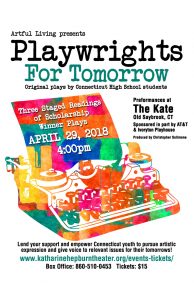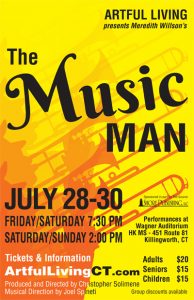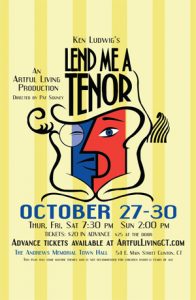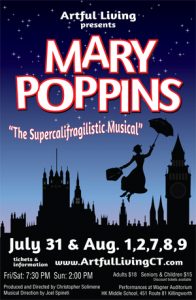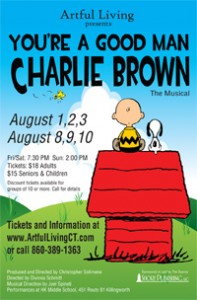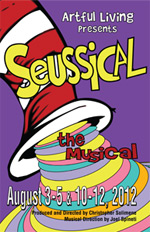 Artful Living presents Playwrights for Tomorrow
Artful Living presents Playwrights for Tomorrow
Original plays by Connecticut High School students
The mission of Artful Living’s Playwrights for Tomorrow is to give Connecticut youth an opportunity for artistic expression through reading and producing their original short plays and empowering their art through validation and potential scholarship awards. Artful Living is a 501c3 Community Theater organization dedicated to education and community building.
Original plays should be written in Standard Script Format (download Helpful Hints document) and submitted electronically NO LATER THAN JANUARY 7, 2019 to chris@ArtfulLivingCT.com . Up to three Playwrights will be chosen to win $500 Scholarships. Three or more plays may be selected for staged readings and presented by rehearsed actors at The Katherine Hepburn Cultural Arts Center on May 4, 2019.
The Playwright and the Guardian/Parent of Playwright must attest that:
1) The submitted play is an ORIGINAL work (plagiarism is a serious offense) running no more than 40 minutes.
2) The Playwright is a High School student (or home schooled at the grade 9-12 level)
3) The Playwright is the only writer of this play (no co-writers allowed)
4) If selected, the Playwright could win a $500 Educational Scholarship and/or have the play produced
If your play is selected, you will have the opportunity to discuss with a director, designer and actors the development and limited staging of your script. This process will begin in March with a meeting of all playwrights and directors. You’re invited to participate from the initial round-table reading and discussions with directors, designers and fellow playwrights, through the rehearsals with an artistic team, to the staged performance of YOUR work on May 4, 2019.
Questions? Call Producer, Chris Solimene at 860-389-1363 or email chris@ArtfulLivingCT.com
Happy Writing!
Chris & the Play Selection Committee
Helpful Hints for Young Playwrights:
Storytelling 101: Be sure to have a beginning-middle-end, but also think in terms of introducing your characters, revealing their conflict(s) and resolving them (or not) in some complete way. Remember you are writing a play for the stage, not a novel or a movie. Move the action with dialogue.
Staged Stories are Visual: Writers need to describe the setting, time, and place, if not with dialogue, then in the notes. What do you want the audience to see, hear, smell, taste, feel? Dialogue (or notes) can evoke our imaginations and make YOUR world our world.
Characters with ‘character:’ Who wants what? What stands in the way? What is the consequence of her/him/them not getting whatever that is? Give each character her/his own distinct personality. What’s the reason he/she exists in your story? Use dialogue to advance your story, but remember, a bit of the ‘unknown mystery’ gives the audience a way to be engaged and fully involved. Move us emotionally, but have a purpose and whenever possible, show us emotion through the action(s) taken rather than just the words spoken. Explaining is not experiencing!
Hooray! This creating is FUN: Yes, writing and re-writing a new play can be hard work, but collaboration with other theatre artists is fun and seeing YOUR work on the stage is tremendously rewarding. Trust your imagination and writing skills to create a story that will engage and excite other theatre artists and, eventually an entire audience!
Standard Script Format: Sample
Set up your pages for 8.5” x 11” to be printed on one side only, using black ink. Font: Times New Roman or Courier, 12 point. Be sure to number ALL pages Don’t forget a Cast of Characters page. See the standard format for play scripts below.
The below example is based on and credited to The Eugene O’Neill Theater whose original may be seen at http://www.theoneill.org/files/9213/0835/2540/YPF_Script_Format-1.pdf .
Another more in depth source for formatting scripts can be found at https://ptfaculty.gordonstate.edu/lking/CPF_play_formatting2.pdf

